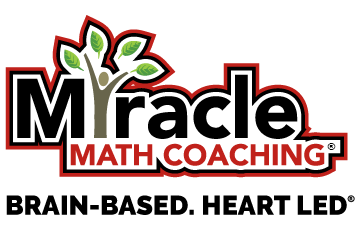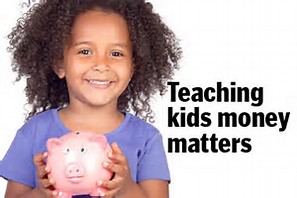It Pays to Talk with your Kids about Money
By Deanna Hurn, Founder and Executive Director of Miracle Math Coaching
Does your young child believe nickels are worth more than dimes because nickels are bigger?
That makes so much sense, right? Correcting kids on the value of coins is easy. But you might think a deeper conversation about money would go over their heads. Not according to new research.
If you want your daughters and sons to be financially responsible adults, it’s never too early to talk with them about money, reports a study conducted by Dr. Lynsey Romo, a professor of Communications at North Carolina State University.
“The takeaway here is that even young kids are aware of financial issues, regardless of whether parents talk with them about money,” Romo says. “And if parents aren’t talking with their kids about subjects like family finances or debt, the kids are drawing their own conclusions — which may not be accurate.”
Here are six things your younger child probably believes:
• The ATM gives out free money.
• If you use a credit card, you never have to pay for what you buy.
• Going to work and going shopping at Safeway have nothing to do with one another.
• A tax is what you use to pin paper to the bulletin board.
• If you have money, you want everyone to know how much.
• The more things you buy, the happier you’ll be.
Simply talking about these myths will help your child understand the role of money in your family’s life. And you’ll instill values at the same time – the rewards of hard work, the reason to keep track of what you spend, the benefits of saving, the need for confidentiality and the desire to contribute to the greater good (because, after all, isn’t that the reason for taxes?)
For a kid, that last bullet sounds like a no-brainer, especially around the holidays. If getting things make you happy, why shouldn’t you buy as many things as possible? Bringing up this question can lead to a great discussion about what’s important in life.
Ask them what’s more important than money? Would they rather get a new toy or spend a day with their grandmother; use an example of a beloved relative who they rarely see? If offered the gift of $100 in exchange for being sick in bed for a month, which would they choose?
And let them count out and hand over the money at the check stand, tally the coins in your purse or wallet or set up a savings goal for their allowances (10 percent?) Or, for older kids, have them figure out how many hours someone earning minimum wage would have to work to earn enough for a cell phone. You can brainstorm other money-related problems for them to consider.
And if you want to find out how to improve your student’s grades with brain-based learning, call Miracle Math at 707-398-3474 today. Ask for a FREE Learning Discovery Evaluation to see where your child stands academically and how we might help: Click here to sign up now. Miracle Math Coaching is an award-winning, student-focused service with a track record of boosting academic achievement.







